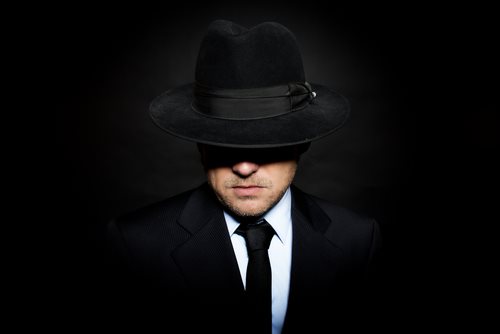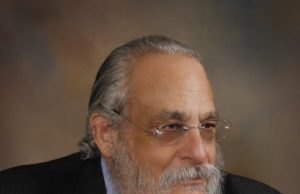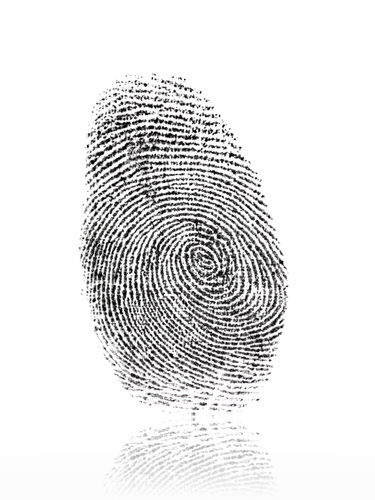DWI

Gamer Hacked and Disabled New Hampshire Servers

On November 15, 2012, the Department of Justice announced that a Dutch national was indicted by a federal grand jury in the District of New Hampshire after he conspired to hack into and disable servers belonging to Rampid Interactive. The company is based out of New Hampshire, and it hosts an online game called “Outwar.”
The defendant’s name is Anil Kheda, and he is charged with one count of conspiracy to commit computer intrusion and one count of extortionate interstate threats.
According to the indictment, Kheda and other members of the conspiracy hacked into the computer systems of Rampid without authorization from November 2007 to August 2008. The conspirators caused the game to become unplayable for several days at a time. They were able to gain access to user accounts, restore accounts for suspended players, and obtain a copy of the computer code for “Outwar.”
From the computer code, the conspirators were then able to create an online game called “Outcraft” that competed with “Outwar.” Throughout the infiltration into Rampid’s system, the conspirators also sent messages that stated they would continue to hack into the systems unless Rampid paid them money and provided other benefits.
Rampid could not operate “Outwar” for a total of two weeks because of the hacking. They lost $100,000 in the process after it had invested $1.5 million to create the game in the first place. Kheda was able to make $10,000 off the “Outcraft,” and he had about 10,000 players worldwide participating in the game.
He now faces up to five years in prison for the conspiracy charge and two years in prison for the threats. The Justice Department has not released any information about the maximum amount of fines.
The FBI investigated the case against Kheda.
Source: Department of Justice
Colombo Family Street Boss Gets 199 Months

On November 21, 2012, the US Attorney’s Office for the District of Massachusetts announced that Ralph F Deleo of Somerville was sentenced to 199 months in prison. U.S. District Judge Douglas P. Woodlock also sentenced Deleo to three years of supervised release and a $50,000 fine.
Deleo was the Colombo Family street boss for the La Cosa Nostra. The criminal organization engaged in the distribution of narcotics, extortion, loan sharking, racketeering, and more.
The government was able to prove that Deleo engaged in the following criminal activity:
• paid and arranged for a cocaine deal of two kilograms
• traveled to Florida, New York, and Connecticut for criminal organization business
• attempted to collect payments by extortion on March 11, 2009 in Canton, MA
• arranged for the beating of a financial advisor for a businessman’s brother
• imported large amounts of marijuana from Canada
• hid at least 11 firearms, a silencer, ammunition, police uniforms, patches from police departments, wig, zip ties, and more
The mafia organization operates in different areas of the United States and Canada in groups known as “families.” The most powerful families are located in New York City, and the Colombo family is one of the most powerful and dangerous families.
United States Attorney Carmen M. Ortiz stated, “Our office continues to investigate and prosecute organized crime wherever it attempts to establish a foothold in the Commonwealth. We are prepared to prevent it from victimizing and corrupting any of its victims, including legitimate businesses.”
Richard DesLauriers, Special Agent in Charge for Boston’s FBI, stated: “For the second time in one week, investigations by the FBI and our federal, state, and local law enforcement partners have led to the conviction and sentencing of high ranking LCN members. Last week, New England LCN’s leader was sentenced, and today, the acting street boss of the Colombo crime family faced justice.”
Source: Federal Bureau of Investigation
66 Indicted for Drug Trafficking in Puerto Rico

On September 28, 2012, the US Attorney’s Office for the District of Puerto Rico announced that 66 people were indicted by a federal grand jury for drug trafficking in the Municipality of Ponce. The investigation was led by the FBI and the Puerto Rico Police Department.
The defendants face six different counts for possession and intent to distribute crack cocaine, heroin, cocaine, and marijuana. The members conspired to distribute the drugs around the Dr. Manuel De La Pila Iglesias Public Housing Project and other areas in Ponce, Puerto Rico.
The FBI and Puerto Rico Police Department believe the crimes started around 2007. The main leaders of the criminal organization are believed to be Franciso Santiago-Serrano, Edel Lopez, Rafael A Rodriguez-Garcia, Jomar Ramos-Rosado, Isueanette Lopez-Nazario, Wally Gonzalez-Rodriguez, Jesus E. Colon-Salinas, Israel Rodriguez-Zayas, Raymond Santiago Serrano, Justo Bermudez-Stevens, and Teddy Rivera. These men are believed to have transported wholesale amounts of cocaine to co-conspirators.
The FBI reports that the criminal organization moved its drug points from location to location in the Dr. Pila Housing Project to avoid investigation from law enforcement. The organization is reported to have used force and violence in order to deter rival drug organizations. The indictment found that there were 11 leaders, eight enforcers, nine runners, 31 sellers, one lookout, and six different suppliers.
The defendants face a minimum sentence of 10 years in prison and a maximum sentence of life in prison. The defendants also face fines up to $10 million. 28 of the defendants face a minimum term of 15 years in prison.
Rosa Emilia Rodríquez-Vélez, the U.S. Attorney for Puerto Rico, stated: “Violent drug organizations hold our communities hostage and promulgate fear, intimidation, and violence, threatening the well-being of law abiding citizens. This investigation has taken dangerous criminals off the streets of Puerto Rico and sends a clear message to other violent gangs that we will break their grip on our communities and bring them to justice, no matter where they are.”
Source: Federal Bureau of Investigation
La Cosa Nostra Associate Sentenced to 33 Months

On October 1, 2012, the Department of Justice announced that Louis Barretta of Philadelphia was sentenced to 33 months in prison for involvements in the La Cosa Nostra family. Barretta was sentenced for participation in loan sharking and illegal gambling.
Barretta is one of 14 members of the La Cosa Nostra family that were charged with crimes like racketeering conspiracy, extortion, loan sharking, illegal gambling, witness tampering, and theft. These other members were charged in a 52-count superseding indictment: Joseph Ligambi, Joseph Massimino, George Borgesi, Martin Angelina, Anthony Staino, Jr., Gaeton Lucibello, Damion Canalichio, Gary Battaglini, Roberty Verrecchia, Eric Esposito, Robert Ranieri, Joseph Licata, and Louis Fazzini.
In addition to his prison term, Barretta is also ordered to serve three years of supervised release and pay a fine of $7,500. The penalties came after a plea where he admitted that he issued loans through usury and collected the loans by means of extortion. He also admitted to a bookmaking business for sports.
On August 2, 2012 Lucibello pleaded guilty to racketeering conspiracy and was sentenced to 51 months. Angelina pleaded guilty to the same charges on August 8, 2012, and received 57 months.
The Department of Justice states that the trial for Ligambi, Massimino, Borgesi, Staino, Canalichio, Battaglini, Licata, and Fazzini is scheduled for October 9, 2012. The trial for Verrecchia, Esposito, and Ranieri has not yet been scheduled.
The investigation was led by the FB, the IRS’s Service-Criminal Investigation, the Pennsylvania State Police, the New Jersey State police, the Philadelphia Police Department, the U.S. Department of Labor’s Office of Inspector General Office of Labor Racketeering and Fraud Investigations, and the U.S. DOL’s Employee Benefits Security Administration. Trial attorney John S. Han and Assistant U.S. Attorneys Frank A. Labor, III and Suzanne B. Ercole are prosecuting the case.
Source: Federal Bureau of Investigation
Attorneys File Even More Charges against Madoff Employees

On October 1, 2012, the US Attorney’s Office for the Southern District of New York announced that Daniel Bonventre, Annette Bongiorno, Joann Crupi, Jerome O’Hara, and George Perez received additional charges in a superseding indictment. All of the defendants were long-time employees of Bernard L. Madoff Investment Securities LLC.
The first indictment in November of 2010 stated that conspiracy to defraud clients started around 1992. The superseding indictment alleges that conspiracy started in the 1970s or even earlier. Two new charges are included in the superseding indictment as well, including bank fraud in connection to corporate and personal loans as well as tax offenses.
According to the superseding indictment, the defendants acted in the following ways:
Bongiorno was in the Investment Advisory (IA) business for about 40 years and managed accounts with a cumulative balance around $8.5 billion. Crupi was in the IA business for 25 years and managed BLMIS IA accounts that had a balance around $900 million up to November 30, 2008. Both of these employees handled false account statements.
Bonventre was an employee of BLMIS for 40 years and the director of operations. He was in charge of Financial and Operational Combined Uniform Single Reports with the SEC and knowingly presented inaccurate reports. He also presented false tax returns to show tax auditors.
O’Hara and Perez were computer programmers for BLMIS. They are accused of creating programs hid the nature of the business, changed names of account holders, changed information about shares and transactions, and more.
Bonventre faces 22 counts, Bongiorno faces 10 counts, Crupi faces 13 counts, O’Hara faces 8 counts, and Perez faces 8 counts. You can view a chart of the offenses and maximum penalties at the following link: https://www.fbi.gov/newyork/press-releases/2012/manhattan-u.s.-attorney-files-additional-charges-against-former-employees-of-bernard-l.-madoff-investment-securities-llc.
U.S. Attorney Preet Bharara stated, “As we have said repeatedly since this breathtaking fraud was first discovered four years ago, we will not rest until all the alleged participants and enablers are made to answer for their conduct.”
Source: Federal Bureau of Investigation
Man Admits to Illegal Gambling/Violent Debt Collection

On October 1, 2012, the US Attorney’s Office for the District of Massachusetts announced that Minh Cam Luong, aka “Ming Jai,” pleaded guilty to operating an illegal gambling business and using violence to collect money from indebted gamblers. Luong was scheduled for sentencing on January 14, 2013 by United States District Judge Patti B. Saris.
During the guilty plea, Luong admitted that he ran an illegal gambling business in dens located in Boston’s Chinatown. The dens were located on Edinboro Street, Harrison Avenue, and Beach Street, and the dens operated from July 2009 to June 2011. The dens provided high-stakes gambling on Chinese table games. The most popular game was call “pai gau” where gamblers actually play against each other instead of the house. The house would then collect five percent on every winning hand, which ranged from hundreds to tens of thousands of dollars.
Luong issued large of money to gamblers and other people, but when they could not pay back the debt, Luong and his partners would threaten violence. Multiple gamblers and owners of other gambling dens in Chinatown were beaten up to collect debts and maintain Luong’s reputation.
During an intercepted conversation, Luong stated that his Beach Street grambling den made $100,000 in just three days during the Chinese New Year in 2011. During the same conversation, Luong said the den usually grossed $60,000 to $70,000 every week. Other intercepted conversations revealed the threatening comments.
According to the FBI, Luong faces a maximum penalty of 20 years in prison for each of the 10 extortionate collections counts. He faces a maximum penalty of five years in prison for the illegal gambling business count, and he faces a maximum fine of $250,000 for each of the counts.
Assistant U.S. Attorneys Richard L. Hoffman and Timothy E. Moran are prosecuting the case.
Source: Federal Bureau of Investigation
Genovese Mafia Member Gets 25 Years for Racketeering

On October 11, 2012, the US Attorney’s Office for the Southern District of New York announced that Emilio Fusco received 25 years in prison for racketeering and extortion crimes. He is part of the Genovese Organized Crime Family of La Cosa Nostra.
In May of 2012, he was sentenced to one count of conspiring with the Genovese Organized Crime Family, one count of extorting owners of restaurants and strip clubs in Springfield, Massachusetts, and one count of interstate travel for racketeering. He was also found guilty of the murder of Adolfo Bruno and Gary Westerman in November of 2003.
Evidence presented at the trial proved that Fusco joined the Genovese Crime Family in Springfield in the mid 1990s. From then until 2008, he worked with others to extort a business owner in Springfield. He received about $12,000 every month as a result of the extortion.
He completed a 33-month sentence in 2006 for former racketeering and money laundering convictions. He was convicted for extorting multiple businesses in the Springfield area.
He is believed to have conspired with other members of the Genovese Crime Family in order to murder Adolfo Bruno and Gary Westerman. At the time of their murders, Bruno was the captain of the family’s Springfield faction and Westerman was a family associate. Fusco believed Westerman was cooperating with the police. He was acquitted of the murder charges, but the judge found Fusco committed the murders by preponderance—or weight of the evidence.
Fusco is also believed to have distributed marijuana. Court documents also show he was engaged in loan sharking and illegal gambling.
In addition to his 25 years in prison, Fusco is also ordered to undergo three years of supervised release. He is ordered to forfeit $260,000 as well. The co-defendants were sentenced to life in prison.
Source: Federal Bureau of Investigation
Businessman Guilty of Bribing Georgia Commissioner

On October 1, 2012, the US Attorney’s Office for the Northern District of Georgia announced that Mark Gary, of Duluth, pleaded guilty to bribing the Gwinnett County Commissioner in 2009 in order to secure rights to build a waste transfer station.
Ricky Maxwell, the Acting Agent in Charge for the FBI Atlanta Field Office, states, “This case illustrates that those who entice or bribe public officials will quickly find themselves as defendants in a public corruption investigation and prosecution.”
According to information presented in the court, Mark Gary wanted to develop a $4 million solid waste transfer station around October of 2008. The facility acted as a way station during the trash collection process and transferred trash from haulers to the appropriate landfills. Gary submitted the necessary documents to obtain county approvals and permits, but the permits eventually needed approval from the Gwinnett County Board of Commissioners.
According to the FBI, Shirley Lasseter was elected as the District 1 representative for the Gwinnett County Board of Commissioners, and Gary helped get her elected. After she was elected, she almost immediately appointed Gary to the Gwinnett County Planning Commission.
Then, between March and April of 2009, Gary spoke with Lasseter and her son about the application for the waste transfer station. Gary offered money to Lasseter and her son, John Fanning, if Lasseter voted to approve the application.
Lasseter voted to approve the waste transfer station on April 28, 2009, and Gary then paid her son $30,000 in June of 2009.
Gary was charged on September 5, 2012 for trying to bribe Lasseter and her son. He faces a maximum penalty of 10 years in prison and a fine up to $250,000. His sentencing is scheduled for January 2, 2013, and Assistant U.S. Attorney Douglas W. Gilfillan is prosecuting the case.
Source: Federal Bureau of Investigation
















